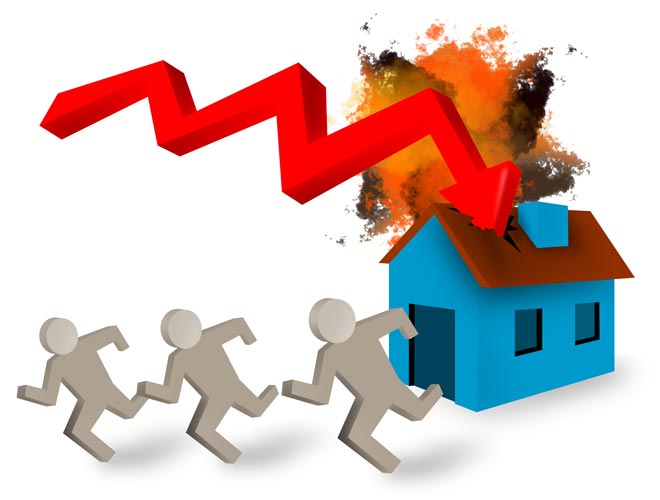From The Sydney Morning Herald.
Deloitte Access Economics’ quarterly business outlook, released today, predicts the official cash rate of 1.5 per cent will climb slowly in 2018 and 2019 to reach 3 per cent in the early 2020s.
The Reserve Bank was well aware “interest rates are now a massively more potent weapon for slowing the Australian economy than they’ve ever been before”, the forecaster said.
It noted Australian families have overtaken the Danish in recent months to become the world’s second most indebted households after the Swiss, relative to income – a consequence of “dangerously dumb” house prices.
Director Chris Richardson told Fairfax Media a crisis could be averted if, as he predicted, interest rates rose slowly and steadily. But cheap credit and high leverage still posed risks.
“In global terms our housing prices are asking for trouble,” Mr Richardson said, arguing many workers have found their homes make more money each day than they do. “That’s kind of God’s way of saying: this thing’s gonna blow.”
Sydneysiders were particularly vulnerable, Deloitte found, having benefited enormously from low interest rates but now witnessing “silly prices” that continued to grow – a “rather worrying development” in Deloitte’s eyes.
“The seeds of future slowdown are already well and truly sown. The better that NSW looks now, the greater the troubles that this state is storing up for the future,” the outlook warned.
“The joy of rising wealth eventually gives way to the pain of servicing gargantuan mortgages. Interest rates are beginning to rise around the world and although official interest rates in Australia may not follow suit until 2018, that augurs badly for the disposable incomes of Sydneysiders.”
Martin North, principal of Digital Finance Analytics, expressed concern Australia could be heading for a version of the US sub-prime mortgage crisis that preceded the Global Financial Crisis.
The parallels involve spiralling household debt, stalled incomes, rising levels of mortgage stress and interest rates that are on the way up.
Mr North’s modelling shows 669,000 families (or 22 per cent of borrowing households) are in mortgage stress. That would rise to 1 million households, or one third of borrowers, if interest rates rose by 3 percentage points.
But the main factors in Mr North’s reckoning are the static nature of wages and the rising tide of under-employment.
“This falling real income scenario is the thing that people haven’t got their heads around,” he told Fairfax Media.
“Unless we see incomes rising ahead of inflation and under-utilisation dropping, any increase in interest rates is going to have a severe impact on [people’s] wallets and therefore in discretionary spending and therefore on growth.
“I have a feeling we are meandering our way, perhaps a little bit blindly, into a rather similar scenario to the US.”
Mr North said mortgage stress was not only an issue for battlers and people on the urban fringe, but increasingly affected more affluent, highly leveraged households.
He dismissed the possible solutions put forth by Treasurer Scott Morrison as “political theatre” and invoked former prime minister Paul Keating by arguing Australia may be heading for “the correction we have to have”.
“I’m not sure that there are other levers that are available,” he said.
The Deloitte report also poured scorn on cutting immigration to boost housing affordability, an idea backed by former prime minister Tony Abbott among others.

